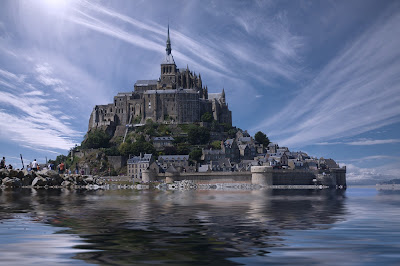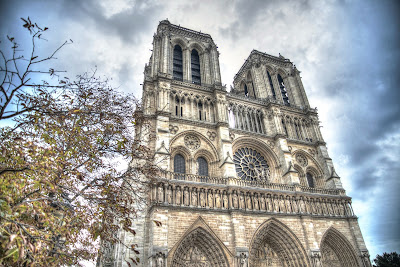*This is a collaborative post*
'A walk about Paris will provide lessons in history, beauty, and in the point of Life'. Thomas Jefferson.
There are few Cities on Earth more iconic than Paris.
As St.Valentine's day looms it seems only fitting to incorporate a glance at one of the most iconic cities on Earth, the world renowned 'City of Love'.
It's amusing to me that despite a playful dislike between the French and British, on the whole we think quite highly and even in cases, romantically of the French (even if we wont admit it.) We love their capital, art, wine, champagne, Paris luxury homes, architecture and even the language claims the epithet 'of Love', despite the fact that there has never been any love lost between the British and the French from a historical standpoint. We admire French flair and exuberance and relish from childhood stories of chivalry, bravery and courage.
This love/hate affair that we have with France is all the more remarkable due to a war filled past but I think there are many similarities as well as differences between our countries. Just take for instance the fact that during the middle ages we were at war with our European cousins for 116 consecutive years, in what is now known as the 'Hundred Years War'. I mean think of that, a war which lasted well over 100 years during the 14th and 15th centuries, 5-6 generations of people all born into war. A war made famous for it's bloody and mercilessly cruel battles such as at Agincourt and Crecy respectively.
The two victories were regarded at the time as being hugely significant and today are viewed as two of England's most famous wartime 'victories' of all time; right up their with Waterloo, and the defeat of the Spanish Armada. The English success at these particular battles was thanks in large part to the efficient utilization of the Longbow, which was the medieval equivalent of a modern day machine gun; a tool of death which did not discriminate between peasant, knight nor King, it could and did practically wipe out the Nobility of France.
This in itself is and was a cause for distaste among the French ruling classes of the time, as the use of the longbow which was used by men of low birth and low social rank was seen as being damn right un-chivalrous. A French knight was much more willing to die for his God and King if he was to be killed gallantly charging a rival nobleman or during some other 'honourable' act of courage (as was the way it was always done). The realisations post Agincourt within the remaining French nobles that they could be killed while hundreds of yards away from the enemy by an anonymous and comparatively 'low-skilled' peasant was something which filled them with dread and with distaste. Unfortunately for the French army at Agincourt in 1415, our own King Henry V (himself a scion of the French and English Royal families); was not as scrupulous about the codes of chivalry when it didn't suit his 'divine' plan. He ultimately felt that if he led his army to victory during this battle it would be because God was on his side and therefore a clear sign to everyone that God supported his claim to the throne of France. The ends in his case justified the means.
It should be noted that the French would later ditch their chivalrous code to some extent and improved upon the Longbow with the introduction of the crossbow which was even more deadly than the longbow; it could be used by pretty much anyone with little skill required and it could be reloaded even quicker than the bow.
It should be noted that the French would later ditch their chivalrous code to some extent and improved upon the Longbow with the introduction of the crossbow which was even more deadly than the longbow; it could be used by pretty much anyone with little skill required and it could be reloaded even quicker than the bow.
As a rugby fan for 80 minutes each year during the Six Nations Championships I relish the battle against the French, the weight of history definitely plays an integral part in the passion and intensity and the sheer will to win which both teams exhibit. Whenever we beat the French at any sport it feels like a more special victory than the average and whenever we lose to the French it always stings slightly more than the average too. In rugby terms for those unfamiliar, we Brits always fear the French due to their flair, eccentricity, unpredictability and willingness to try outlandish things in the heat of battle. This “French Flair” is unlike anything of any other nation and it has at times even made the All Blacks scratch their heads on their day, with this flair and capacity to create wondrous passages of play they can beat anyone. I believe this flair is a feature of the collective national make up somehow, as it seemingly permeates through French culture in many ways; through cuisine, fashion, style and art. However, when you consider the huge influence of the French on English and British culture one can start to see some similarities between our countries despite all of the animosity and our differences through the centuries.
France like Britain has a long and distinguished history and the French are well known for their establishment and founding of the Codes of Chivalry which over the years has only enhanced the romantic notion of the long haired gallant knight on horseback, fighting the bad guys and saving the fair maidens. Of course in Britain today we still have many vestiges of our own historic chivalric orders such as the Order of the Garter of Honi soit qui mal y pense fame; this motto is a seemingly innocuous insertion of French into a symbols of an institution which might seem at first glance to be as English as tea and crumpets. But why should an English order of nobility have a French motto, in fact come to think about it on the royal coat of arms of Great Britain are the words Dieu et mon Droit meaning God and my Right in English and there are many other such examples. Many of the major legal, political and military institutions of Britain have either symbols or mottos of French origin.
Of course William the Conqueror was of French extraction hailing from Normandy in Northern France. The name Normandy itself is etymologically interesting and informative as it roughly translates from the Old French for, “Land of the Northmen”. Northmen was the name bestowed upon the Vikings by those who were subjected to their murderous pillaging raids. William the Conqueror through his Father was actually a descendant of the Northmen who became the Dukes of Normandy, and whom along with their people left Scandinavia and settled in Normandy once the King of France granted them this territory in exchange for their protection and loyalty to the French throne. The Vikings fully integrated and accepted French ways and customs such as drinking wine and marrying French women so that within a couple of generations French became the main language of the Normans. I digress slightly, but I find the interlinking histories of nations quite fascinating.
So from William's invasion in 1066 and onwards for the next few hundred years the nobility of this country and the Kings of England themselves all spoke French as their first language including the famous Richard 'the Lionheart' (or 'Cœur de lion', en Francais), rather than English. So the powerful institutions as afore mentioned were Normanised and we still see the eveidence everyday. An easy way to see this legacy is to look at Military terms, including military, militia, Lieutenant, General, Colonel, grenadier, fusilier, engineer; all of these words are French in origin.
It is due to the invasion of 1066 that we have words in our modern English language which are exactly the same in spelling even to this day in both English and French, yet the pronunciation and stresses on syllables and accents vary. In fact the English language is strewn with thousands of words of French origin due to the invasion of the Northmen and their subsequent merciless subjugation and attempted ethnic cleansing of the Anglo Saxon (Germanic peoples in origin) population. Words ending in 'tion', 'able' and many others such as, 'action', 'attention', 'table', 'probable' are spelt the same in both languages. Other words with different endings such as 'content' and erm, 'different.' I've always had an interest in France as a country and actually felt that we share many things in common and language is a great place to see that shared history (ahem, Histoire).
Magnificent Architecture
One of the key elements of visiting France in my opinion is to take in the architecture. Norman Castles such as the at Mont St. Michel are like something from a Fantasy and are dotted around Normandy. Or you might be intrigued to investigate the contemporaneously unrivalled Palace of Versailles situated roughly 20km South West of the centre of the capital. When it was built by Louis XIV, 'The Sun King', it was the most opulent and magnificent palace in the Western world and it was this King whom in 1682 moved his court and government from Paris to Versailles. Back then Versailles was its own small Village/town quite separate from Paris. However, 3 months after the beginning of the French Revolution (another French word) in 1789, Louis XVI moved his court and government back to the centre of Paris. The palace has since then, been a symbol of Absolute Monarchy and as a reminder of the self imposed alienation of the French ruling elite from their subjects, the majority of whom were living mostly in abject poverty and squalor under the tyrannical rule of the Ancien Regime.
It would be remiss to speak of architecture and to fail in at the very least mentioning the world famous visionary creation of Monsieur Gustave Eiffel. The Eiffel Tower was constructed from 1887-1889 and at first it was criticized by some of France's leading artists and intellectuals for being quite at odds with the more traditional French flavours of the time. Despite the doubters today it attracts approximately 6 to 7 million visitors each year and is one of the most popular paid attractions in the world. The Eiffel Tower is now a cultural icon. Standing at 324m/1063ft it has become a symbol of France itself and for 41 years since its creation it held the record for being the tallest man made construction in the world, taking over from the Washington Monument which held the title previously; eventually losing the record to the Chrysler Building in New York City in 1930. France has been a power house of Europe for centuries and I believe the architecture of France and of Paris itself really helps to tell that colourful story.
There are few cities in the world as pleasant to roam and wander, I love the huge open spaces and the wide Boulevards which really infuses me with that feeling you get when you feel like you are in another country, that buzz of excitement. The beautiful details on the buildings and the lush tree lined avenues, Parisian luxury homes are gorgeous, elegant and ooze class. One certainly gets the sense that the creators of these spaces were well aware of the importance of what we would today call, 'Green Spaces'; the architecture and the street layout of Paris is awe inspiring of course with huge population increase and huge numbers of cars it is not as spatial as it was when created but still there are parts of the city which retain the sense of opulence of those bygone times. Norman churches very similar to those found in England can be seen strewn throughout northern France and Paris is home to Notre Dame Cathedral which is one of the most well known religious houses in Europe and the world thanks to the tale of the Hunchback.
Other must sees in Paris have to include the Arc de Triumph, which has to be one of the most painted landmarks in the world surely? You should also try and get to the Louvre which is home to some amazing works of art and artefacts of history including the most famous portrait ever painted, Da Vinci's 'Mona Lisa'. Whether it's a boat ride down the Seine taking in some of the sites of the city or even just relaxing outside a cafė with a nice coffee watching the world saunter by Paris has something for everyone.
I could go on and on about the things I find interesting and the aspects of French culture which I appreciate, the cafés, the bakeries, the croissants and fresh coffee, the art, from Matisse to the wave of French impressionist art in the late 19th Century led by figures such as Monet, Cezanne and Frederic Bazille, from the wine and Champagne regions, to the escargot and fine cuisine. If any of this interests you then please stay tuned for more such scribblings.
Merci et Au Revoir.
*Written by Michael David
FOLLOW GIRLGONEDREAMER:
Twitter | Facebook | Bloglovin' | Instagram
Subscribe to GirlGone Dreamer by Email
Twitter | Facebook | Bloglovin' | Instagram
Subscribe to GirlGone Dreamer by Email













No comments :
Post a Comment
Note: only a member of this blog may post a comment.